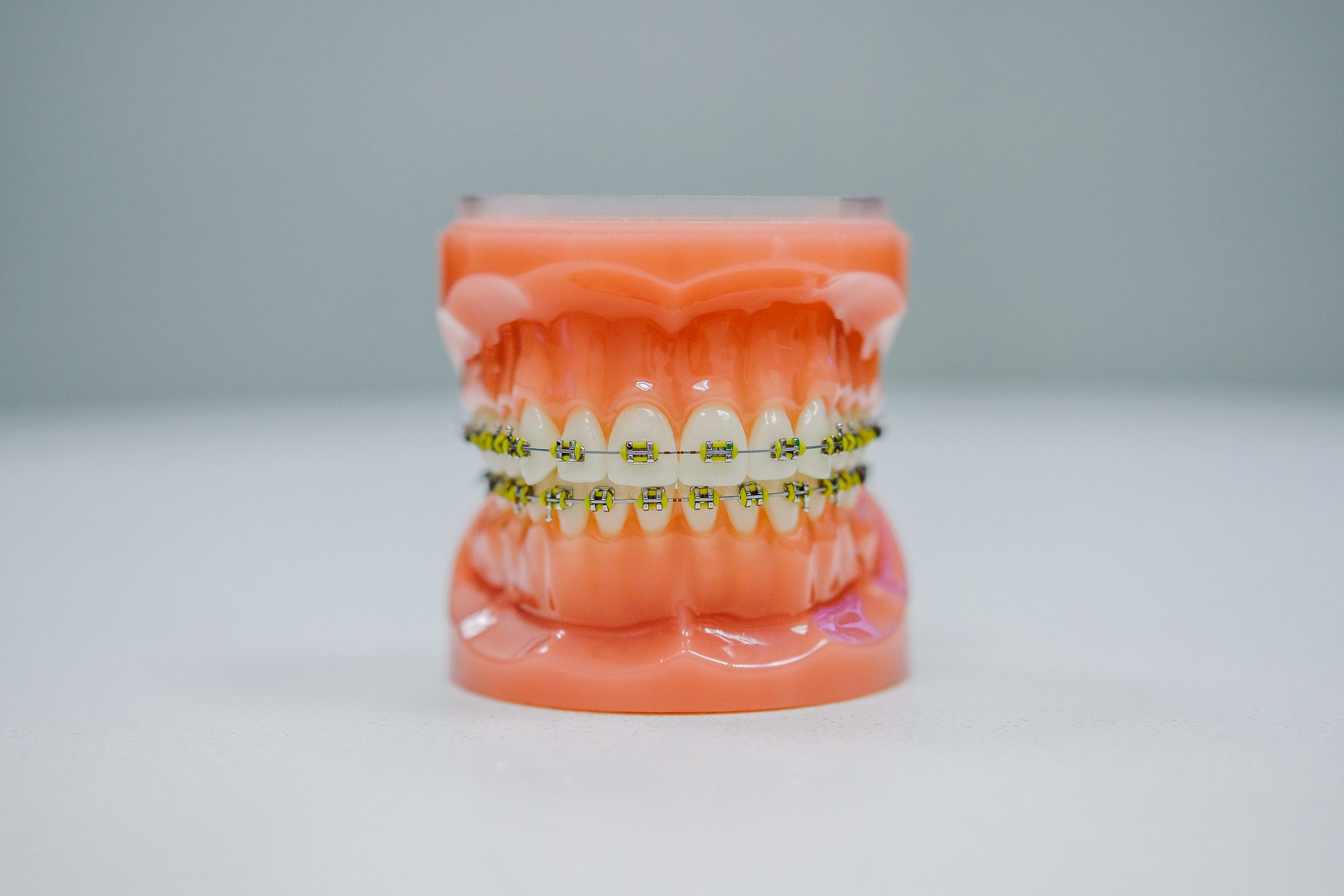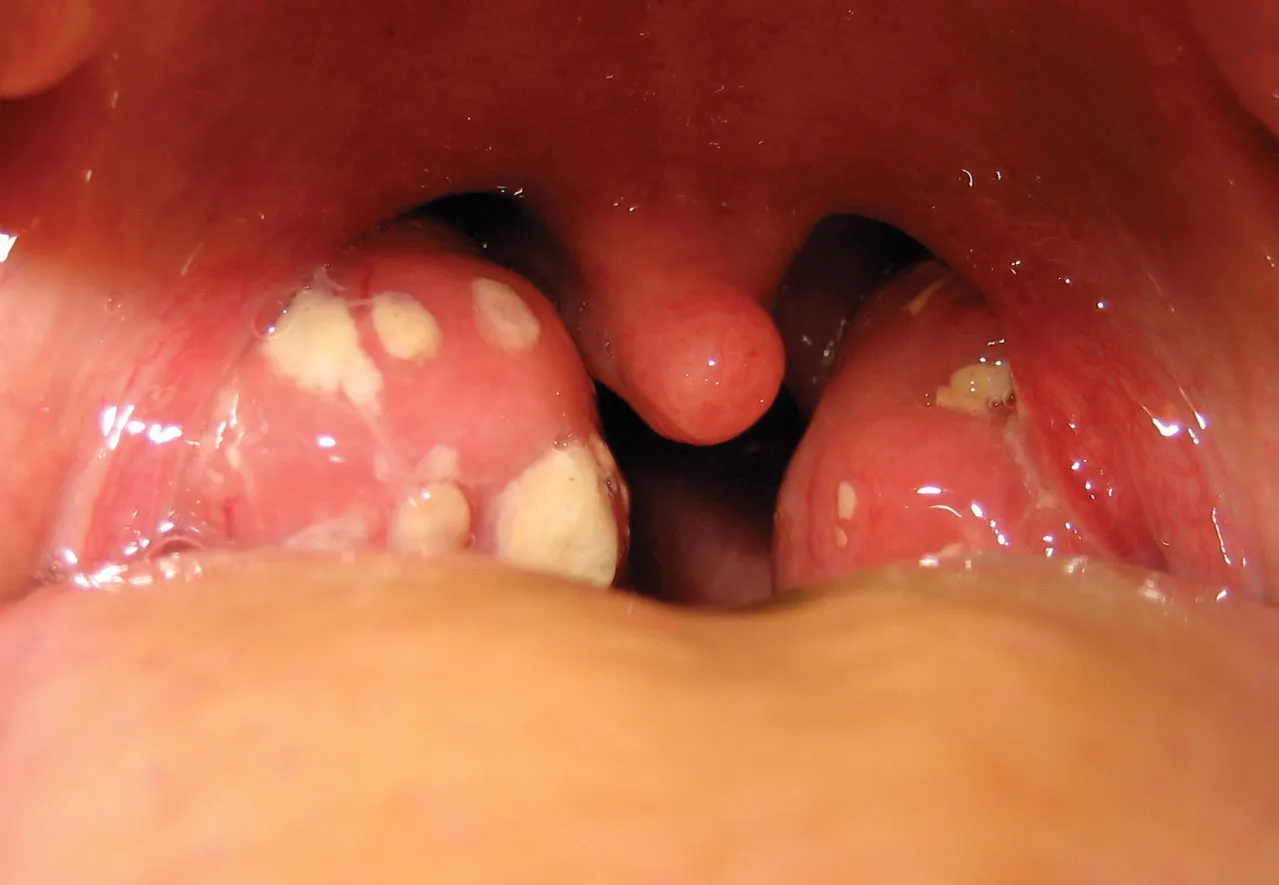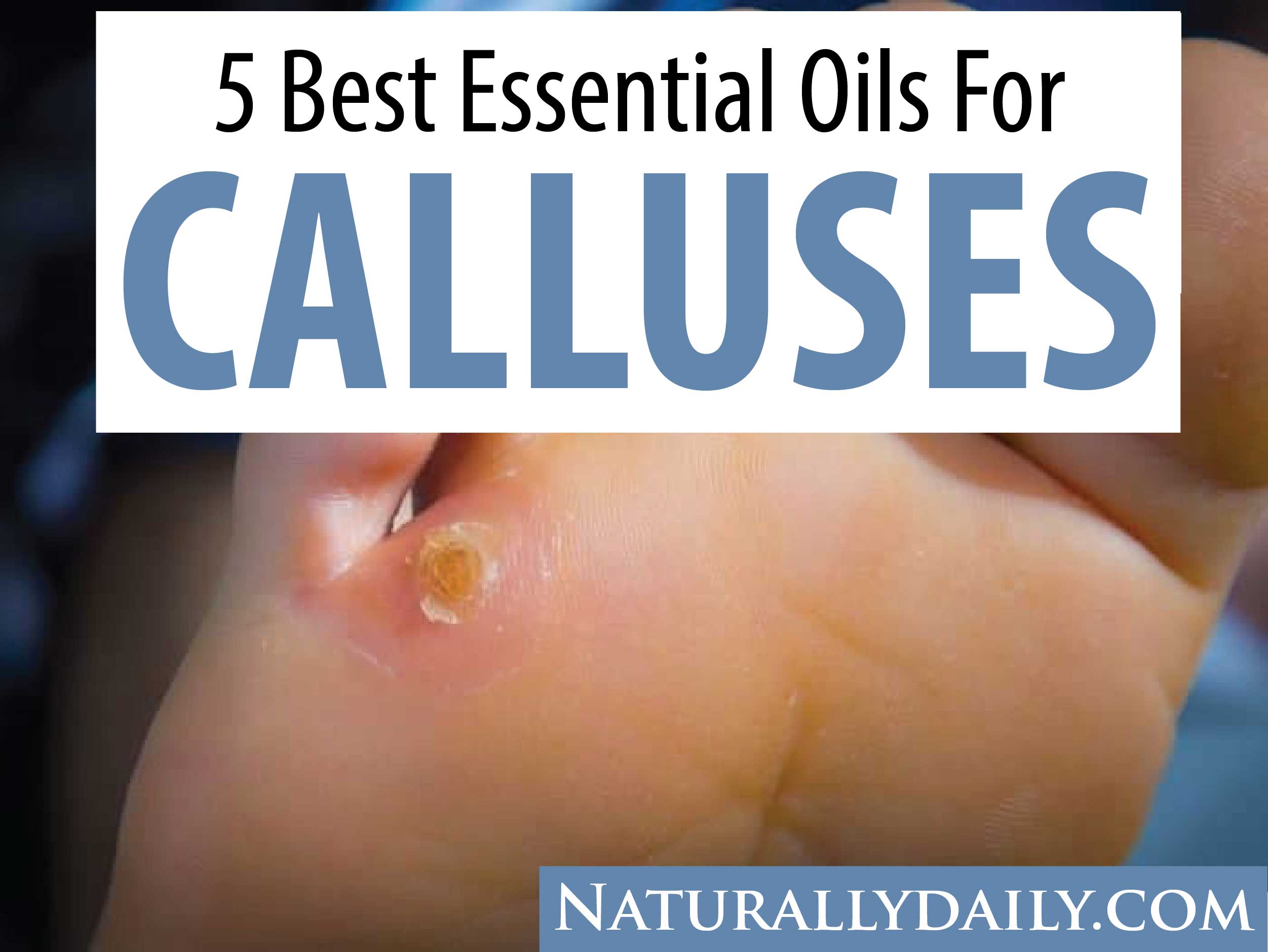As the name implies, toothache refers to the pain in the teeth and around the area [1].
If you can bear the pain, there’s no need to get a dental appointment. [2]
But, if a toothache lasts for more than two days, then you need to be concerned about it.
Some essential oils for toothache may soothe the excruciating pain. Medical research confirms the pain-relieving(analgesic) and antibacterial effects of these oils that may reduce toothache and its symptoms.
Remember, if the pain is severe, or accompanied by a fever or an earache, then you should consult your dentist.
This article reviews the efficacy and uses of some essential oils for toothache. You’ll also get to know the causes and symptoms of different kinds of toothache.
Essential Oils for Toothache and Infection
1. Clove Oil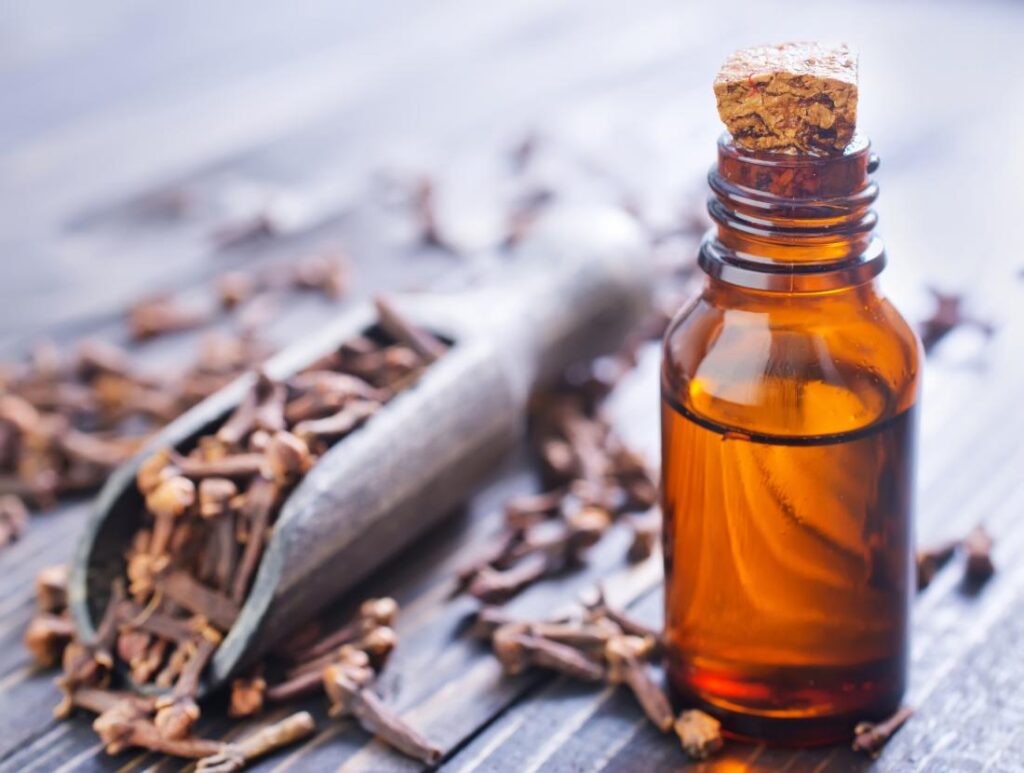
It’s true that the first essential oil on most people’s minds when it comes to toothache is clove oil.
This oil originates from the flower buds of a tree native to the Spice Islands.
Its use has spread to many parts of the world, especially in tropical countries.
It is rich in many potent compounds, one of which is eugenol, which makes up 70 to 90 percent of this oil.
A 2006 study reports that clove oil has a similar numbing effect as benzocaine [3].
Benzocaine is a topical agent applied to the skin before needle insertion [3].
Using clove oil on toothache may numb the pain and provide relief from discomfort.
Clove oil can also control oral bacteria that cause an infection inside the mouth [4].
It was also found to have a synergistic effect with antibiotics. So, it can be more effective in killing oral bacteria when combined with antibiotics [4].
Eugenol is also said to be responsible for clove oil’s strong bactericidal properties [4].
Researchers recommend its use against “cariogenic and periodontopathogenic” bacteria [4].
How to use clove oil for toothache:
- Mix 5 drops of clove oil and 1 tsp of coconut oil in a glass jar with a lid.
- Pour a few drops into a cotton ball.
- Put the cotton ball in the affected area.
- Do not swallow clove oil.
- Rinse your mouth after 10 minutes.
- Do this remedy three times a day for one week or until the pain is gone.
2. Peppermint Oil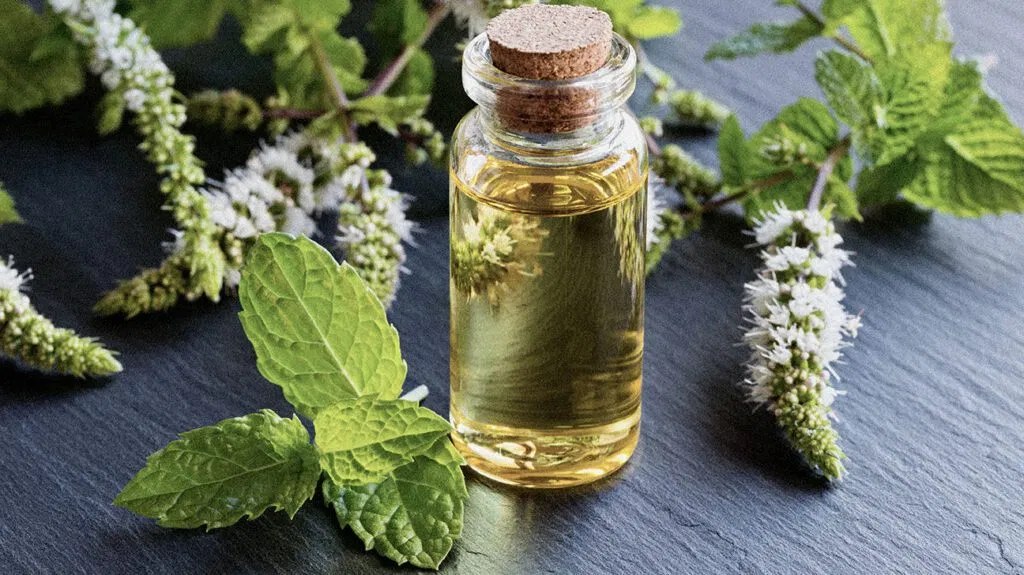
Peppermint tea has been popular all over the world for its amazing health benefits.
It has analgesic and anesthetic effects and immunomodulating properties, among others [8].
Its oil extract is just as beneficial.
It is a natural treatment method for irritable bowel syndrome and a host of other diseases [8].
Now, if you’d like to get rid of tooth pain, this is also a good remedy to try.
It can provide relief from severe pain with its antinociceptive properties [9].
It works by blocking the pain signals in the central and peripheral nervous systems [9].
Menthol, peppermint’s most active compound produces a cooling sensation when applied topically [10].
It stimulates the cold receptors by suppressing certain currents in the neuronal membranes [10].
The oil can also neutralize the pathogenic microorganisms that cause infection [11, 12].
How to use peppermint oil for toothache:
- Pour 5 drops of peppermint oil into 1 tsp of olive oil.
- Gargle this mixture for one minute.
- Wash your mouth with warm water.
- Do this technique once or twice daily for one week.
Also Read: 8 Reasons to Use Peppermint Oil for Hair
3. Tea Tree Oil
One of the most valuable essential oils in the world is tea tree oil.
Traditional healers have been using this oil for over a hundred years. It’s because the oil is rich in antiseptic, antimicrobial, and anti-inflammatory components [5].
The oil is rich in pharmacological effects. Thus, many aromatherapists have relied on it for the treatment of a wide range of ailments.
For those who are suffering from toothache, tea tree oil can provide relief in several ways.
A clinical trial shows that tea tree oil is an effective treatment for gingivitis. It’s a gum infection that causes toothache [6].
In this experiment, 49 participants with chronic and severe gingivitis participated. They received either 2.5% tea tree oil gel, chlorhexidine, or a placebo gel twice a day. The trial lasted for eight weeks [6].
Tea tree oil gel users had a much greater reduction in inflammation compared to others [6].
There were no adverse reactions reported following the use of tea tree oil [6].
Terpinen-4-ol, the primary component of tea tree oil contributes to its ability to tone down inflammation [7].
It works by suppressing the production of pro-inflammatory mediators [7].
The oil can also inhibit the activities of up to 161 strains of oral bacteria including Streptococcus, Actinomyces, and Fusobacterium among others [7].
It means tea tree oil is not only a relief for toothache but also a part of people’s oral hygiene [7].
Learn how you may use tea tree essential oil for toothache:
- Pour 3 drops of tea tree essential oil into 1 tsp of olive oil.
- Use a cotton pad to apply the mixture to the painful area.
- Press for three to five minutes.
- Gargle with water.
- Do this once a day for one week.
Also Read: 7 Easy Ways to Use Tea Tree Oil for Scabies
4. Lavender Oil
Whenever you’re feeling stressed or burnt out, or when you can no longer focus, you can turn to lavender oil.
Lavender oil’s claim to fame is its ability to tone down stress levels.
This comes in handy in today’s fast-paced and high-stress society.
In dentistry, the aroma of this oil can ease feelings of anxiety [13].
A toothache can bring so much pain and distress, and lavender oil may help by soothing your senses.
That’s not all the oil could do, of course.
There’s enough scientific evidence to prove its analgesic and anti-inflammatory properties. These components can ease pain and swelling caused by tooth decay or other dental problems [14].
Here’s how you may use lavender essential oil for sensitive teeth:
- Combine 5 drops of lavender oil and 1 tsp of olive oil.
- Soak a cotton ball into the affected teeth.
- Leave it on for 10 minutes.
- Rinse your mouth with warm water.
- Do this technique twice a day for one to two weeks.
Also Read: 11 Health Benefits of Lavender Oil That You Should Know
5. Cinnamon Oil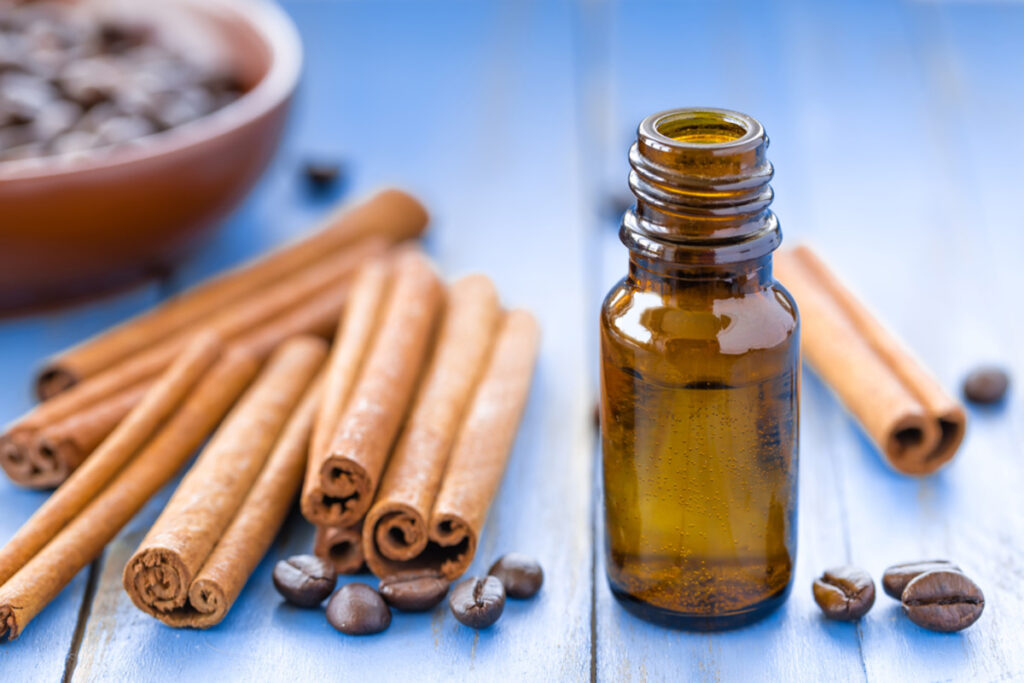
When you’re suffering from a toothache, the last thing on your mind is to eat anything sweet.
Cinnamon should not be one of those that you should avoid.
Its oil extract is, in fact, helpful in easing tooth pain.
Cinnamon oil can control bacterial infection that causes dental ailments.
Cinnamon oil’s bactericidal effects can affect many strains of oral bacteria [15, 16].
Try this cinnamon essential oil for toothache:
- Dilute 5 drops of cinnamon oil in a cup of warm water.
- Gargle this mixture for three minutes.
- Follow this technique twice a day for one week.
6. Myrrh Oil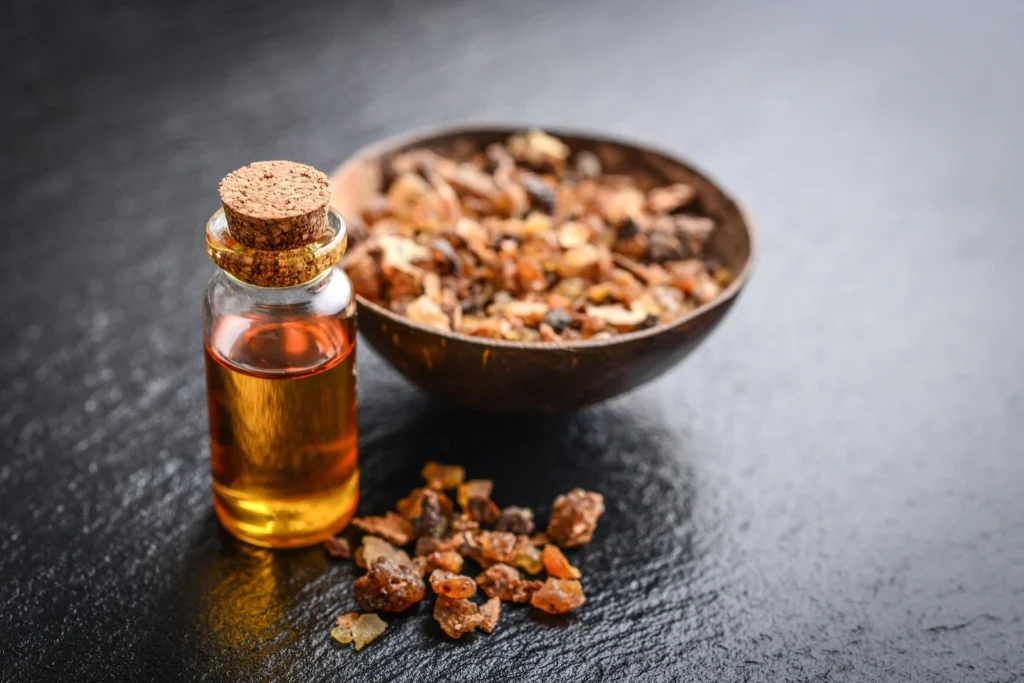
Myrrh essential oil plays many important roles in traditional medicine:
It is an antimicrobial, expectorant, antifungal, carminative, antiseptic, immune booster, anti-inflammatory, antifungal, and antispasmodic.
A toothache is one of the many issues that it can help resolve.
A study reveals that myrrh oil has significant analgesic and anti-inflammatory properties [17].
It is capable of inhibiting inflammation of the gums, which more often than not, leads to tooth pain [18].
How to use myrrh essential oil for toothache and abscess tooth:
- Combine 1 tsp of almond oil and 3 drops of myrrh oil.
- Use a cotton pad to apply the mixture to the affected tooth.
- Repeat this remedy twice a day for one to two weeks.
Also Read: 11 Amazing Health Benefits of Myrrh Oil (Backed by Scientific Evidence)
7. Chamomile Oil
Dental plaque is one of the most common causes of toothache.
When there’s a buildup of plaque on the surface of the tooth, it produces acid. The acid damages the tooth’s outer layer and penetrates the inner pulp to cause damage as well.
When this happens, the decayed tooth brings so much pain.
In this case, chamomile can help.
25 patients diagnosed with gingivitis participated in a study. They received either German chamomile mouthwash or a placebo twice daily [19].
The result showed that chamomile mouthwash reduced not only gum inflammation but also dental plaque [19].
These effects were achieved without any unpleasant side effects [19].
Other studies show that chamomile oil does have a positive effect on dental health. It’s because this oil has strong antimicrobial and anti-inflammatory properties [20, 21].
An easy way to use chamomile essential oil for tooth abscess and pain:
- Pour 3 drops of chamomile oil and 2 drops of peppermint oil into 1/2 cup of water.
- Use this blend to rinse your mouth.
- Do this twice a day for four weeks.
8. Rosemary Oil
Rosemary oil has been linked to so many benefits for health.
It is also one of the remedies that you should consider if you complain of a toothache.
Its analgesic, antinociceptive and anti-inflammatory properties can reduce tooth pain [22, 23, 24].
A group of researchers probed the efficacy of this oil as well as other oils in reducing plaque and gingivitis in 60 patients [25].
Results showed that rosemary could resolve dental problems, including toothache [25].
Here’s how you may use rosemary essential oil for tooth abscesses:
- Add 10 drops of rosemary oil to a glass of water.
- Gargle the solution twice a day for one to two weeks.
Also Read: 13 Health Benefits and Uses of Rosemary Oil (Backed by Evidence)
9. Ginger Oil
Many people who use ginger in their cooking are not aware that this rhizome is beneficial to their health.
You can use its oil extract as a remedy for various health problems, including toothache.
Ginger oil is a potent anti-inflammatory and analgesic, as confirmed in a 2006 study [26].
It can inhibit oral bacteria including Porphyromonas gingivalis, Porphyromonas endodontics, and Prevotella intermedia [27].
How to use ginger essential oil for tooth infections and toothache:
- Add 5 drops of ginger oil to 1 tsp of almond oil.
- Apply oil blend to the sore tooth.
- Gargle warm water afterward.
- Use this procedure three times a day for five days.
10. Thyme Oil
Like ginger, thyme is also a staple in the kitchen.
If people knew about its medicinal value, they’d use it in their cooking more often.
Thyme has the strongest inhibitory effects on oral bacteria that cause tooth pain [28].
How does it work against oral pathogens?
Its active compound thymol inactivates these microorganisms and prevents them from replicating [28].
Here’s how you may use thyme essential oil for tooth pain:
- Take a bowl and add 5 drops of thyme oil, 2 drops of clove oil, and 1 tsp of olive oil in it.
- Soak a cotton ball.
- Put the cotton ball on the painful tooth.
- Do this remedy once or twice a day until the pain subsides.
11. Basil Oil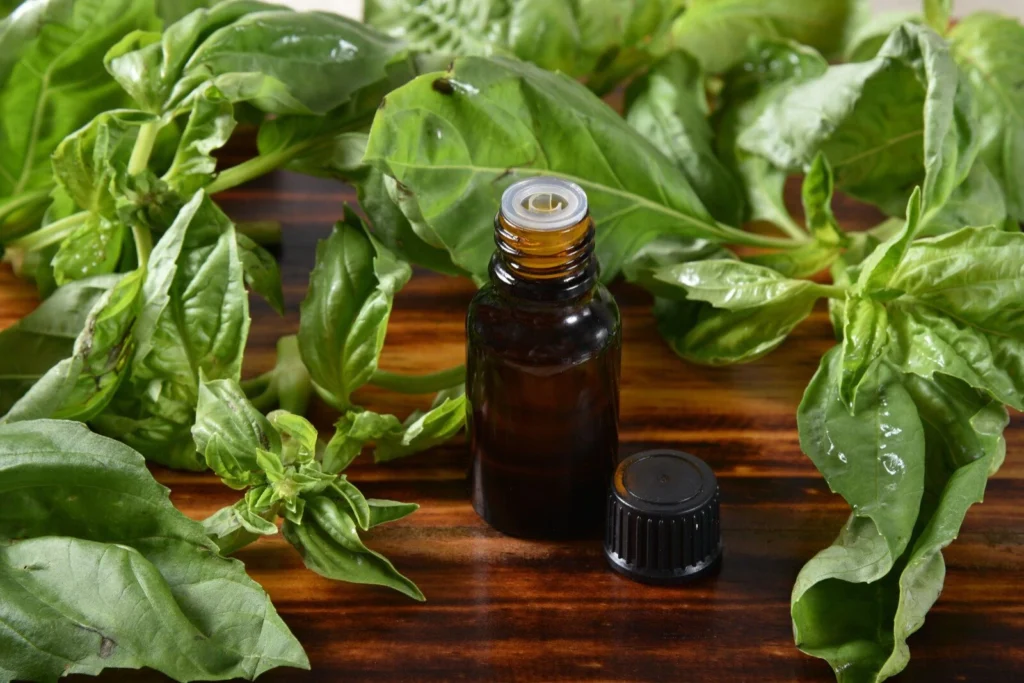
In India, basil has been used since ancient times to cure a wide range of ailments [29].
Positive results have been obtained regarding its efficacy as a medicinal herb [29].
The oil extracted from this plant is quite beneficial.
If you have a toothache, this can help tone down the pain.
It works by inhibiting the production of inflammatory enzymes to reduce inflammation [30].
How to use basil oil for toothache and infection:
- Add 5 drops of each basil and thyme oil to a cup of water.
- Wash your mouth with this solution three times a day for five days.
12. Bay Essential Oil
Bay essential oil is not that famous but an effective essential oil for toothache. Bay essential oil is best for nerve pain which makes it a must-have for treating toothaches.
If you have pain while laughing or chewing you may rely on bay essential oil as a remedy.
It has antibiotic and antiseptic properties. These components contribute to the healing of toothaches.
Its analgesic properties help to get relief from the pain.
Learn how you can use bay essential oil for toothache:
- Mix 3 drops of bay essential oil in 1/2 cup of warm water.
- Rinse your mouth with the mix three times a day until you get relief.
Precautions While Using Essential Oils
Although essential oils are natural, they are quite strong. So, you must be careful about some of the factors before you use them:
- Always dilute the essential oils before you use them.
- If you’re under medication, consult with your doctor before using them.
- There’s still no study on the safety of using essential oils for toothache during pregnancy. So, avoid them when you’re expecting them.
- If you are allergic to any specific essential oil, avoid using it.
Symptoms of Different Types of Toothache
- Pain that comes and goes
- Dull pain that worsens each time you eat or drink
- Sharp, severe pain that’s more severe at night
- Pain that reverberates to the jaws and ears [1]
Causes of Toothache
The primary cause of toothache is inflammation of the dental pulp. It’s the tooth’s inner layer composed of blood vessels and sensitive nerves [1].
This can be a result of any of the following:
- Tooth decay – Holes or cavities on the tooth’s surface
- Cracked tooth – Crack in the tooth due to decay or injury
- Broken fillings
- Receding gums – Exposed gums due to contraction or shrinkage
- Bacterial infection [1]
Other possible causes of toothache are:
- Gum ulcers
- Swollen gums or gingivitis
- Sinusitis
- Injury in the temporomandibular joint
- Teething in babies [1]
When Should You Visit The Dentist?
It’s highly recommended to consult with the dentist for a toothache. The pain can be severe if you are not careful.
Essential oils will soothe your pain. But you need proper treatment to get rid of the excruciating pain for good.
Also, ask for medical attention if :
- You have a toothache because of an infection.
- You have trouble swallowing and chewing.
- Swollen gums.
- Bleeding from the gums.
- You have a fever and earache.
A toothache can make your life miserable.
Consult your dentist to find out what’s causing the toothache. Besides, you may use these essential oils for toothache to get temporary relief from the pain and swelling.
Read Next: 15 Home Remedies for Toothache for Instant Relief
